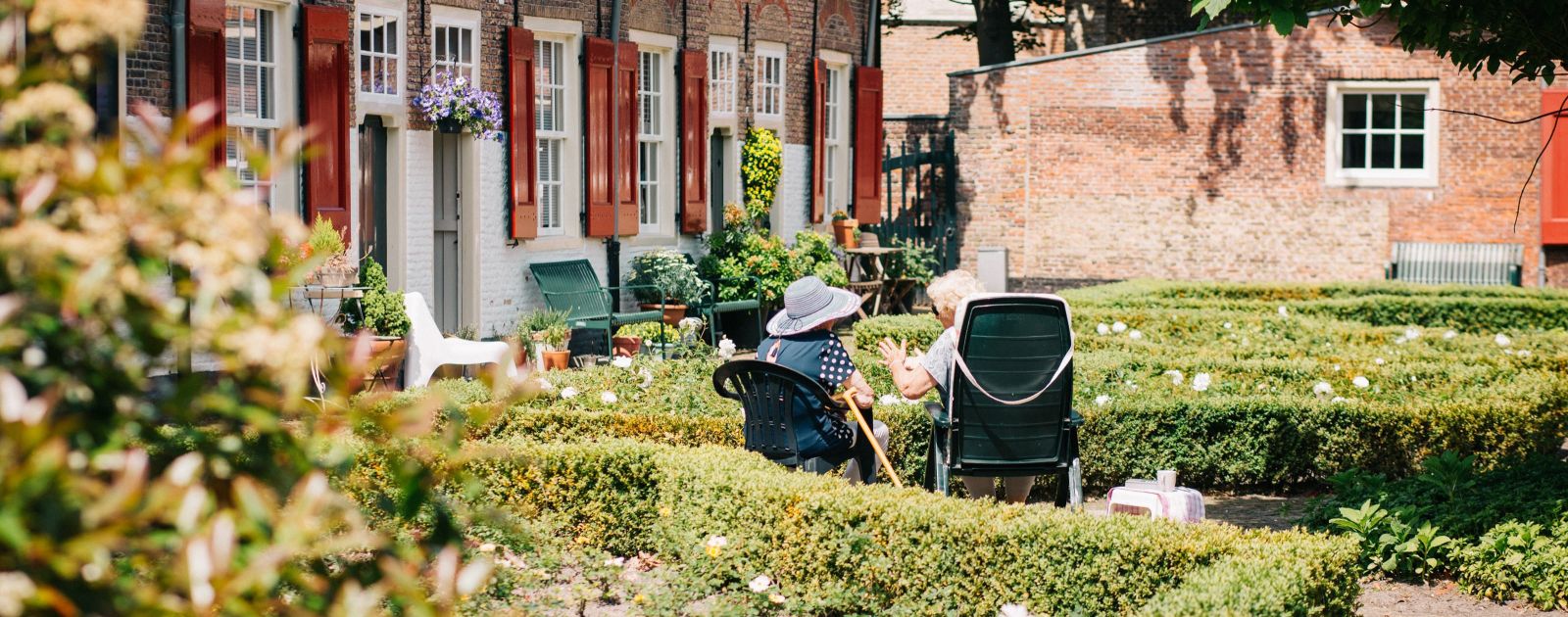
Five ways to ensure you can keep enjoying your garden in later life
Author: Sara Stagg
Do you remember when old age was something that only happened to other people? When, back in your 20’s, you couldn’t understand why your parents or grandparents complained about getting old?
You’re certainly not alone. The good news is, people are living longer which means the ‘typical’ effects of old age often start later than they did 30 years ago. By making an effort to stay fit and healthy, there’s every reason to expect you will live a long and active life.
A key factor in staying fit, active and independent, long into your retirement, is keeping busy. With more time on your hands, you can do all the things you planned when you were busy working. For many, gardening is the perfect pastime.
The benefits of gardening
It’s unavoidable that, as you get older, you will start to slow down. You may get aches and pains you didn’t have before. And you may develop health conditions that need to be carefully managed.
The good news is, gardening is a fabulous way to keep fit and active, without leaving home!
You only have to do a quick search online to find a plethora of articles about the ways that gardening is good for you.
It’s a great way to stay active which is vital for your physical wellbeing and ensuring that you can remain living independently for as long as possible. Physical activity helps your balance and coordination, vital in preventing trips and falls.
Gardening is also good for your mental health. The time you spend communing with nature in the fresh air boosts your endorphins (the feel-good hormones) and activities like planning what to plant, will keep your mind busy.
All too often, people will still be in very good health yet find that their garden gets too much for them. Imagine the frustration of watching something overgrow in a garden you have loved and nurtured for many years, but not being able to do anything about it.
With this in mind, it’s useful to think about ways to ensure you can enjoy your garden for as long as possible by planning ahead.
How to plan a garden that you can manage in later life
Here are five ways you can make sure your garden is still user friendly as you get older.
1. Design a low maintenance haven
Low maintenance doesn’t have to mean boring. There’s no need to rush into having the lawn replaced with shingle or block paving, in the mistaken belief it will be easier to look after as you get older. Indeed, shingle can be a real nuisance if you need to use a walking frame or wheelchair to get around the garden in the future.
Keep your lawn but reduce the size of your borders. As a rule, borders need more care and maintenance to keep them looking their best, think of all that weeding, planting and watering. Stocking the borders with large shrubs will need less looking after and if you plan carefully, you will still enjoy a blaze of colour throughout the year.
2. Design for future accessibility
When you are planning the design of your garden, it’s worth thinking about ways you can make it easier to maintain as you become less mobile or start to suffer from aches and pains.
By installing raised beds, you will reduce the bending or kneeling, and if you use things like sleepers, you can even build in somewhere to sit while you’re weeding.
Levelling a garden that is uneven or has lots of steps is also a good idea as it will make it easier for you to move around and reduce the risk of trips and falls.
3. Labour saving systems
Think about ways to make looking after your garden less strenuous. A great example is to install an irrigation system throughout the garden that saves you having to battle with hose reels or heavy watering cans.
4. Places to rest and relax
Gardening can be physically tiring but shouldn’t be stressful. Include areas that allow you to rest and relax between tasks, or even while you’re enjoying a well-earned cup of tea.
Choose furniture that will stand up to being out in the elements – after all, you’re unlikely to sit in the garden if you have to lift the chairs out from the shed or garage every time you need them. Rattan-style furniture can be a great choice and is very comfortable when you add cushions.
5. Encourage nature
Bird tables, bird feeders and nesting boxes are wonderful additions to any garden. You’ll be surprised how busy gardens can be – even in built up areas – when the conditions are welcoming for wildlife.
Above all, think positively about what you can do in the garden. And don’t be afraid to ask for help with the jobs you can no longer manage. Far better to have someone come in to mow the lawns for you, rather than getting injured whilst trying to do it yourself!
The Dower House Gardens
Here at The Dower House, the gardens are a source of delight all year round. Resident’s enjoy being able to take a stroll around the well-maintained pathways, taking a moment to rest in the many seating areas, and there is always plenty of wildlife to observe around the grounds.
< Back to all Blog posts
Enjoy a taste of life at The Dower House
Join us for a tour of the house to experience the welcoming, homely atmosphere. Book a visit now, we’d be delighted to welcome you.
